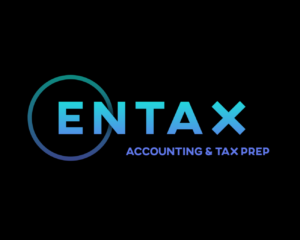
Navigating Tax Obligations for Independent Filmmakers
Maximizing Your Refund: Top Tax Deductions for Entertainers and Artists Tax season can feel like an endless maze, especially for performers and artists. The rules
Tax season can feel like an endless maze, especially for performers and artists. The rules and regulations can be daunting, and it’s easy to overlook valuable deductions that could save you money. Whether you’re a musician, actor, or visual artist, understanding the tax deductions available to you can significantly boost your refund. In this guide, we’ll walk you through 10 essential entertainment tax deductions that can help you keep more of your hard-earned money.
If you use part of your home exclusively for work, you may qualify for the home office deduction. This includes a portion of your rent, mortgage interest, utilities, and even repairs. The key is that the space must be used regularly and exclusively for your art or performance work. Imagine turning your creative haven into a money-saving opportunity!

Traveling to gigs, performances, auditions, or exhibitions? You can deduct travel expenses related to your work. This includes airfare, hotel stays, meals while on the road, and even car expenses. Don’t forget to track your mileage if you’re driving—every mile counts toward lowering your taxable income!
Continuing to hone your craft is essential in the entertainment industry, and the good news is that these expenses can be deducted. Whether you’re taking acting classes, music lessons, or attending workshops, these costs can help reduce your tax bill. Investing in your skills isn’t just good for your career; it’s also great for your taxes!
From musical instruments to art supplies, the tools of your trade are often tax-deductible. This includes items like cameras, lighting equipment, costumes, and even stage props. If these items are necessary for your work, they’re likely deductible, which means more money back in your pocket come tax time.
Promoting yourself and your work is crucial in the entertainment industry. The costs associated with marketing and advertising, such as creating a website, printing headshots, or running social media ads, can be deducted. Every dollar you spend getting your name out there could help reduce what you owe the IRS.

Memberships in unions or professional organizations can come with hefty fees, but the good news is that these are often tax-deductible. This includes dues to groups like SAG-AFTRA, Actors’ Equity, or other industry-specific organizations. By deducting these fees, you can ensure that your membership not only supports your career but also lowers your tax liability.
Renting space for performances or rehearsals? Those expenses can be deducted too. Whether it’s a dance studio, a theater, or even a recording space, these rental costs are necessary for your work and therefore deductible. This is another way to turn your passion into financial savings.
If you’re self-employed and paying for your own health insurance, you may be eligible to deduct your premiums. This can be a significant deduction, especially given the high cost of health insurance. It’s a vital safety net that also helps reduce your tax burden.
Promoting yourself and your work is crucial in the entertainment industry. The costs associated with marketing and advertising, such as creating a website, printing headshots, or running social media ads, can be deducted. Every dollar you spend getting your name out there could help reduce what you owe the IRS.
When you’re entertaining clients or discussing potential gigs over a meal, those expenses can be partially deducted. While the rules around this deduction have tightened in recent years, you can still deduct 50% of qualifying business meals. Just remember to keep detailed records to substantiate your claim.

To make the most of these deductions, it’s essential to keep accurate records throughout the year. Save receipts, track your expenses, and consider using accounting software designed for creative professionals. This will make it easier to claim your deductions and ensure you’re not leaving money on the table.
Additionally, working with a tax professional who specializes in the entertainment industry can be a game-changer. They can help you navigate the complexities of tax law, ensuring you take advantage of every available deduction and avoid common pitfalls.
While these deductions can significantly reduce your tax liability, it’s essential to avoid some common mistakes. Misclassifying personal expenses as business deductions can lead to an audit, so it’s crucial to keep your personal and professional finances separate. Overlooking small deductions is another common error—remember, every little bit adds up!
Understanding and claiming entertainment tax deductions can feel like a daunting task, but it doesn’t have to be. By keeping track of your expenses and knowing what you can deduct, you can maximize your refund and keep more of your hard-earned money. Whether you’re a seasoned performer or just starting, these 10 essential deductions can help you save big come tax season.
Ready to boost your refund? Start organizing your expenses today and consult with a tax professional who understands the unique challenges of the entertainment industry. Your finances—and your future self—will thank you

For further assistance in managing your business finances and building business credit, consider using the following tools:
• QuickBooks: A powerful accounting software to help manage your business finances.
• 1Password: Securely store and manage your business passwords and sensitive information.

Maximizing Your Refund: Top Tax Deductions for Entertainers and Artists Tax season can feel like an endless maze, especially for performers and artists. The rules